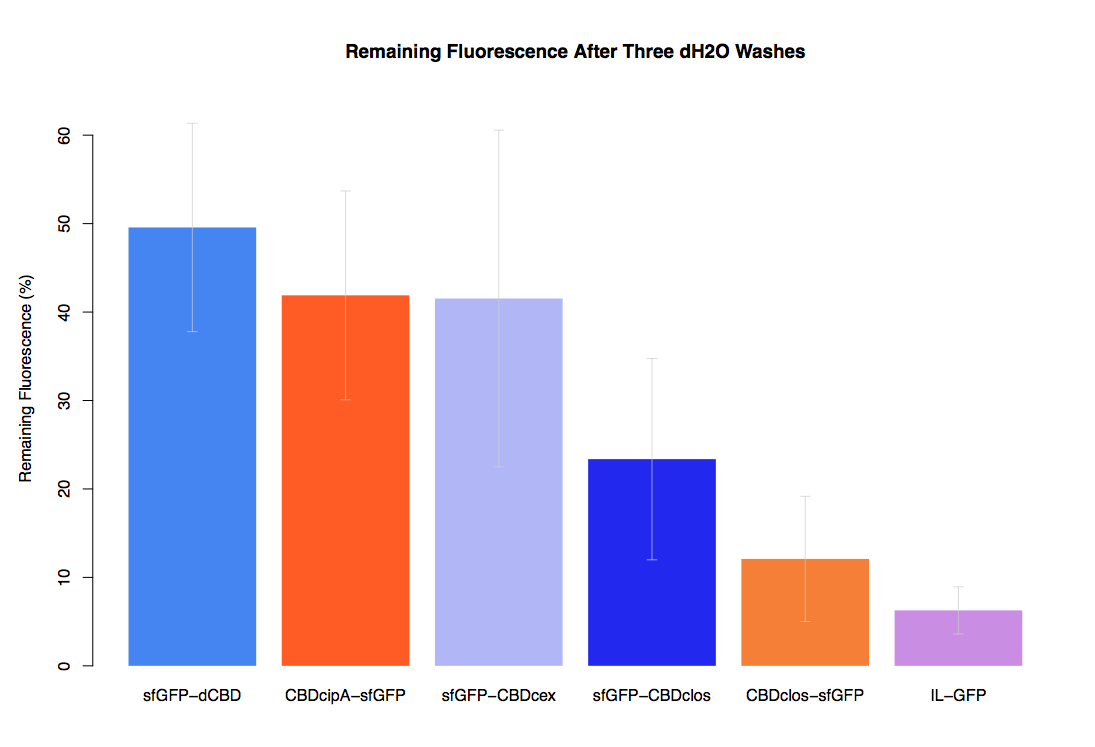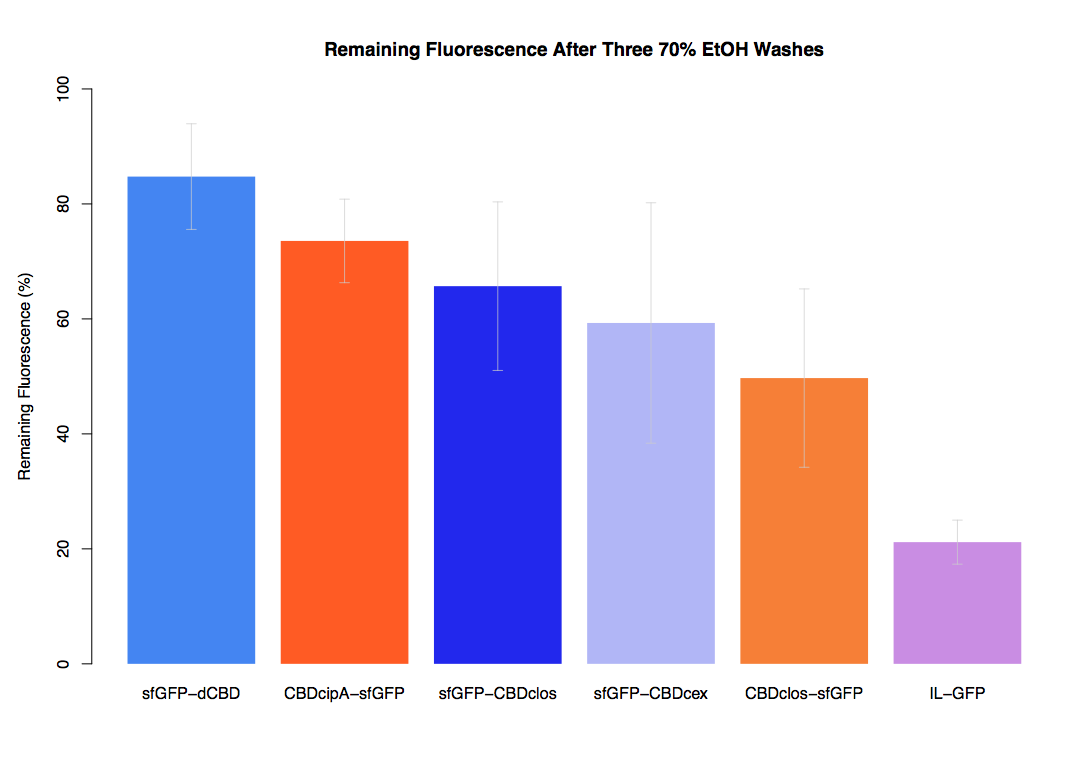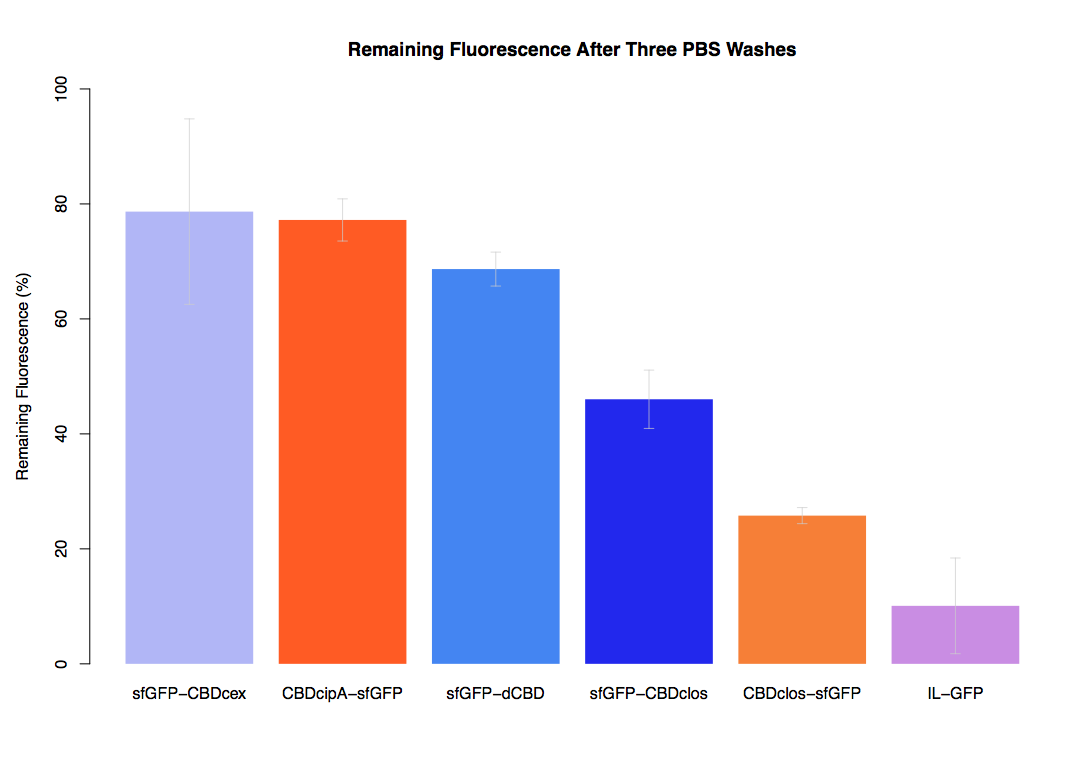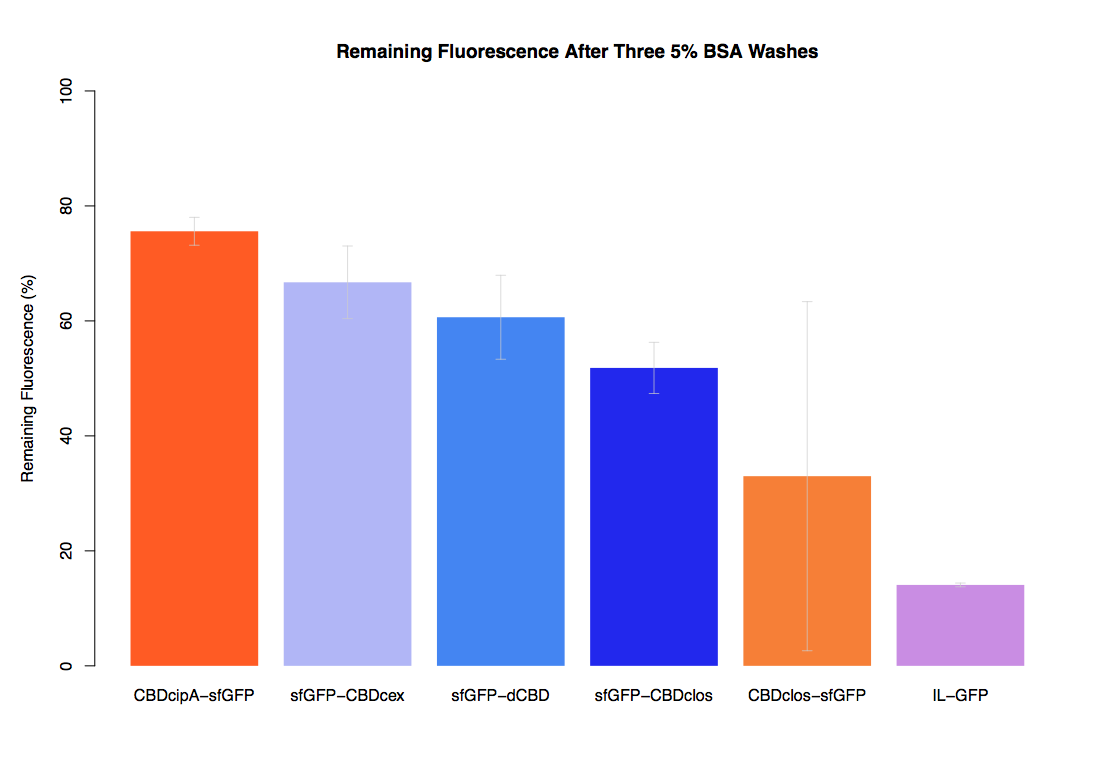Difference between revisions of "Part:BBa K1321346:Experience"
(→Applications of BBa_K1321346) |
|||
| Line 5: | Line 5: | ||
===Applications of BBa_K1321346=== | ===Applications of BBa_K1321346=== | ||
| + | As part of our project we carried out an assay to determine the relative binding ability of CBD-sfGFP fusions to bacterial cellulose. | ||
| + | |||
| + | Our first assay was performed to determine the relative strengths of various CBDs’ binding to bacterial cellulose – represented by the percentage fluorescence left from CBDs fused to ([https://parts.igem.org/Part:BBa_K1321337 sfGFP (RFC25)]) bound to bacterial cellulose discs, when subjected to various washes - it was determined that the fusion with dCBD had the greatest binding ability in comparison to four other CBDs fused to sfGFP after three washes with both dH2O and 70% EtOH. | ||
| + | |||
| + | In the same assay, results suggested that dCBD had on average the third greatest ability to bind bacterial cellulose, after three washes with both PBS and 5% BSA. | ||
| + | |||
| + | [[File:IC14_-_dH2Obplot1.png|700px|left|]] | ||
| + | |||
| + | [[File:IC14-EtOHbplot1.png|700px|left|]] | ||
| + | |||
| + | [[File:IC14-PBSbplot1.png|700px|left|]] | ||
| + | |||
| + | [[File:IC14-BSAbplot1.png|700px|left|]] | ||
===User Reviews=== | ===User Reviews=== | ||
Revision as of 04:18, 2 November 2014
This experience page is provided so that any user may enter their experience using this part.
Please enter
how you used this part and how it worked out.
Applications of BBa_K1321346
As part of our project we carried out an assay to determine the relative binding ability of CBD-sfGFP fusions to bacterial cellulose.
Our first assay was performed to determine the relative strengths of various CBDs’ binding to bacterial cellulose – represented by the percentage fluorescence left from CBDs fused to (sfGFP (RFC25)) bound to bacterial cellulose discs, when subjected to various washes - it was determined that the fusion with dCBD had the greatest binding ability in comparison to four other CBDs fused to sfGFP after three washes with both dH2O and 70% EtOH.
In the same assay, results suggested that dCBD had on average the third greatest ability to bind bacterial cellulose, after three washes with both PBS and 5% BSA.
User Reviews
UNIQd107027dc940d523-partinfo-00000000-QINU UNIQd107027dc940d523-partinfo-00000001-QINU




